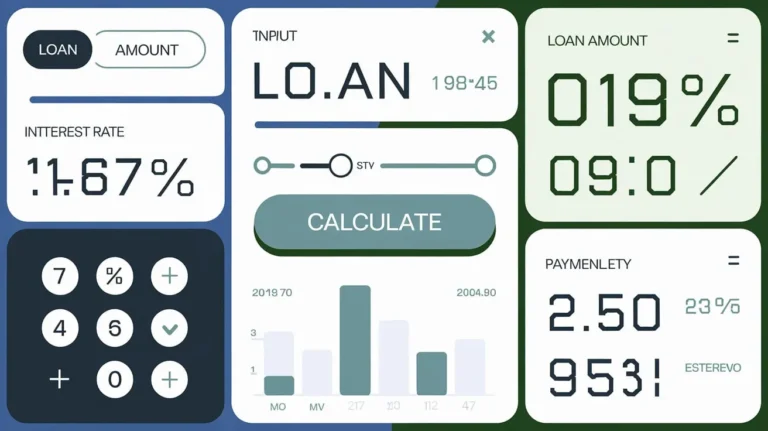
Unlocking the Mysteries of Dreams: Understanding Their Meaning and Impact
Unlocking the Mysteries of Dreams: Understanding Their Meaning and Impact
Dreams are a fascinating aspect of the human experience that has captivated the minds of individuals, scholars, and psychologists for centuries.
Understanding the meaning and impact of dreams can transform how you view your subconscious mind and its role in your life.
In this article, we will delve into what dreams truly are, explore their various interpretations, and uncover the psychological significance behind them.
Whether you find your dreams puzzling or enlightening, we will provide insights that can help you unlock the mysteries hidden within your nightly visions.
What Are Dreams?
Dreams are sequences of thoughts, images, sensations, and emotions that usually occur in the rapid eye movement (REM) stage of sleep.
Although everyone dreams, the recollection of those dreams varies from person to person.
Dreams can be vivid and highly detailed, or they can fade away almost instantaneously upon waking.
From a psychological perspective, dreams can serve multiple functions, such as the processing of emotions and life experiences, memory consolidation, and creativity stimulation.
The Science Behind Dreaming
Understanding dreams requires a glance into the science behind sleep itself.
According to research, humans go through several sleep cycles, with REM sleep being the stage where most dreaming occurs.
During REM sleep, the brain is very active, and electrical activity resembles that of a waking state.
This heightened activity is essential in memory processing and emotional regulation.
Dr. Matthew Walker, a sleep scientist, notes, “Dreaming often helps us process our emotions and cope with challenges.”
Common Themes and Symbols in Dreams
Once you grasp the basic concepts of dreaming, the next step is to explore common themes and symbols.
Many dreams share universal themes such as falling, being chased, or losing control.
These recurring types of dreams reflect common human experiences, and they often symbolize deeper psychological issues.
For example, a dream about falling might indicate feelings of insecurity in waking life.
Decoding Your Dreams
While some people may benefit from dream dictionaries that provide interpretations for common symbols, personal context matters significantly.
The same symbol can mean different things for different individuals based on their unique experiences.
To decode your dreams effectively, consider the following questions:
– What emotions did you experience in the dream?
– What are the key symbols, and how do they relate to your current life situation?
The Role of Emotions in Dreams
Research shows that dreams often reflect our emotional states.
Intense emotions experienced in waking life can manifest as vivid dreams or nightmares.
When you dream about a stressful situation, it may serve as a form of rehearsal, enabling you to process your feelings.
Recognizing the emotional undertones of your dreams can provide insights into your mental health.
Lucid Dreaming: A Dreamer’s Playground
Lucid dreaming refers to the phenomenon where the dreamer becomes aware that they are dreaming, often allowing them to take control of their dream environment.
The practice of lucid dreaming can be both exhilarating and therapeutic.
Many individuals engage in lucid dreaming to confront fears, practice skills, or explore desires without the constraints of reality.
However, mastering lucid dreaming requires persistence, as it involves various techniques such as reality checks and dream journaling.
The Psychological Impact of Dreams
Understanding your dreams can considerably affect your psychological well-being.
They serve as a reflection of your subconscious mind, unearthing unresolved issues and hidden desires.
For instance, a recurring dream about an ex-partner might suggest unresolved feelings or unfinished business.
Taking the time to reflect on the messages conveyed by your dreams can foster personal growth and emotional healing.
Using Dreams for Personal Growth
Embracing the insights provided by your dreams can lead to transformative personal growth.
By paying attention to your nightly visions, you can uncover areas of your life that may require change or attention.
Consider maintaining a dream journal where you jot down your dreams upon waking.
This practice not only helps with recollection but also allows you to identify patterns and themes over time.
Dreams and Creativity: A Pathway to Innovation
Many well-known artists and inventors have credited their dreams with inspiring new ideas.
For example, the structure of the benzene molecule was discovered in a dream by chemist August Kekulé.
Dreams can weave together unexpected connections, providing new perspectives and innovative solutions for challenging problems.
Allowing your subconscious mind to roam freely can unlock immense creative potential.
Cultural Perspectives on Dreams
Throughout history, various cultures have viewed dreams differently.
In some cultures, dreams are seen as prophetic, while others consider them mere reflections of daily life.
For instance, in Ancient Egypt, dreams were interpreted as messages from the divine, and dream interpreters played vital roles in society.
Understanding cultural perspectives can broaden your appreciation for the complexities of dreaming.
Conclusion: Embrace the Mystery of Dreams
In conclusion, dreams represent a profound realm of our subconscious mind, playing an essential role in how we process emotions and experiences.
They can illuminate paths for personal growth, spur creativity, and even provide glimpses into the future or unresolved issues within our lives.
By decoding, reflecting on, and embracing the wisdom found in dreams, you can unlock significant benefits that will lead to self-discovery and emotional well-being.
Next time you drift off to sleep, remember that your dreams hold valuable insights waiting to be revealed!
FAQ
What is the main purpose of dreams?
Dreams serve as a way for our subconscious to process emotions, memories, and experiences.
They often reflect our daily concerns, helping us navigate challenges and cope with our feelings.
Can dreams predict the future?
While scientific evidence does not support the idea that dreams can predict the future, some individuals report feeling that specific dreams have foreshadowed future events.
This phenomenon may stem from intuition or chance occurrences.
Why do we forget our dreams?
Forgetting dreams is common and can occur for several reasons, including the fleeting nature of memory during sleep transitions.
Writing down dreams as soon as you wake can improve recollection.
Are nightmares normal?
Yes, nightmares are a normal event, although frequent nightmares can indicate stress or anxiety.
It’s essential to explore underlying issues if nightmares disturb sleep regularly.
How can I improve my dream recall?
To improve dream recall, keep a dream journal by your bedside and write down your dreams as soon as you wake.
Practice mindfulness and meditation before bed to enhance your connection with your subconscious.
Embrace the practice of documenting your dreams and connecting with others who share similar experiences.
We invite you to share your thoughts, experiences, or any questions you have in the comments section below!





